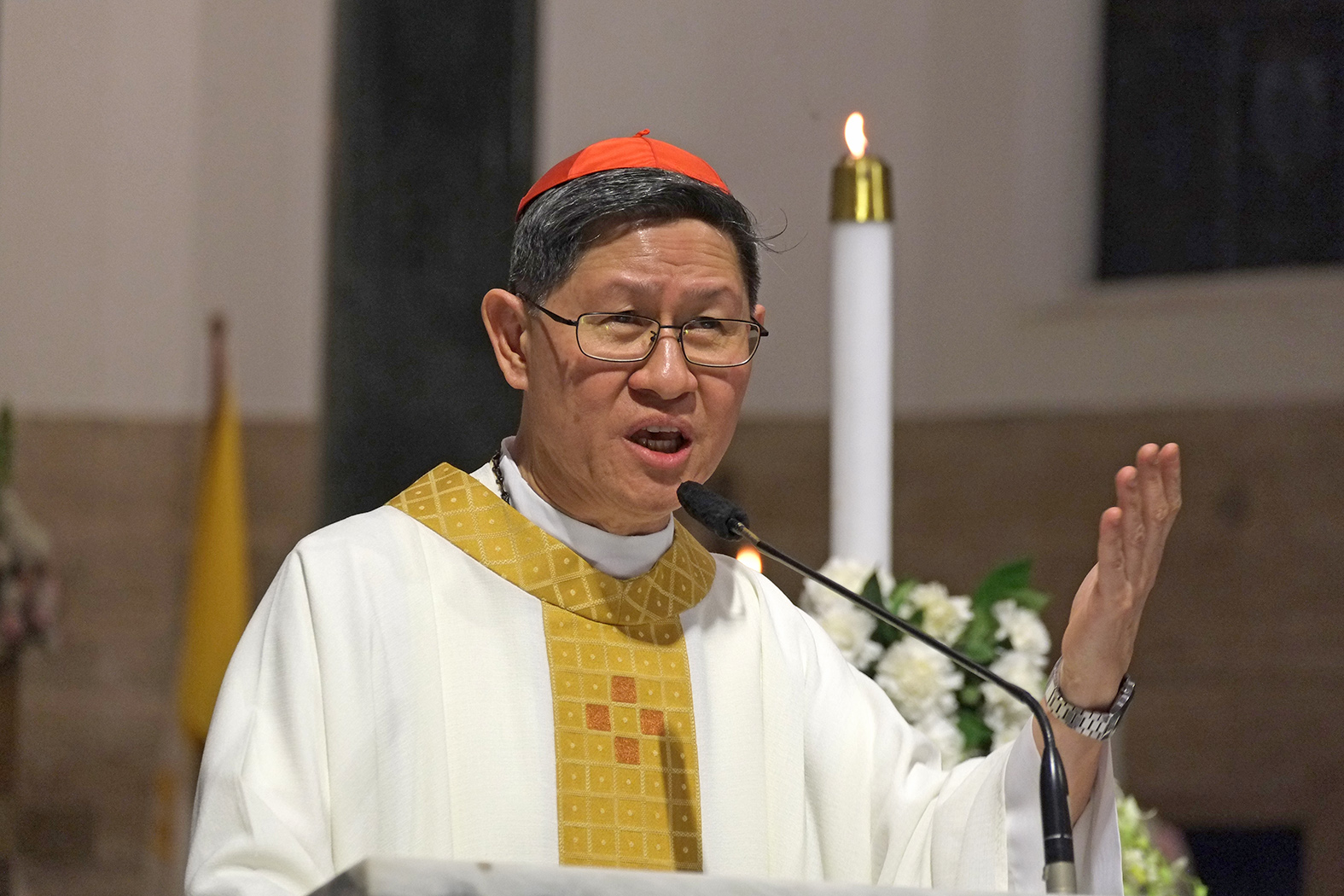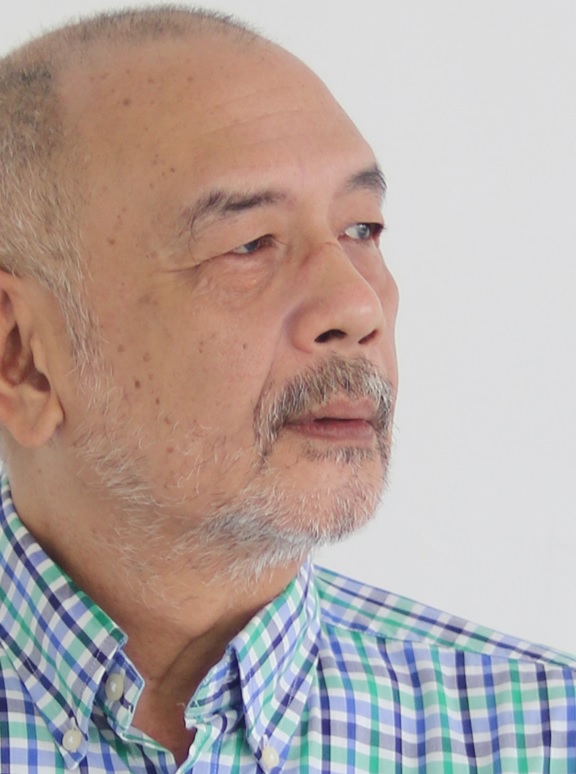How long has it been when there begun publicly registered lamentations on why Luis Antonio Cardinal Tagle was silent on the bloodbath of the Rodrigo Duterte regime?
It has been nine years.
This week, Tagle enters the Sistine Chapel as one of 133 cardinal electors in the conclave to elect the next Supreme Pontiff. The memories of Tagle’s palpable silence remain. It was palpable because in the first six months of Duterte as president the murder toll had reached 7,025, the police count said, or an average of 34 human lives a day from July 1, 2016 to January 30, 2017. It was palpable because Tagle was archbishop of Manila, the primary Catholic See in the Philippines.
As blood was spilling on the alleyways of Metro Manila’s shantytowns, the search for Tagle’s voice came quick and easy like a hot knife through butter. “The silence of Cardinal Tagle” came out in print in one of the country’s national dailies on December 16, 2016. The writer-poet Carlos D. Isles wrote it.
“Except for his sermons on TV on Sundays, he remains distant from the many disturbing news that have emerged . . . The people are confused, hurting and scared to speak out.”
“They ache for a leader, a shepherd, and a voice that will denounce evil, guide and provide solace in this time of grave peril. That leader should be Cardinal Tagle. He should stand in the wind unafraid to show the powerful that those who can kill the body cannot kill the soul. Unfortunately, it appears that he is not the man of the hour to restore courage in the hearts of the people to resist oppression.”
What preceded it was actually a contrast to the silence of Tagle. From July 1 when Duterte assumed office to September, world news organizations were already hot on the death toll numbers. Reuters reported 2,400 deaths. The first Catholic prelate to speak out was Archbishop Socrates Villegas of Lingayen-Dagupan who was president of the Catholic Bishops Conference of the Philippines.
Villegas urged priests to bring the condemnation to the pulpits. His pastoral letter, read throughout the country, asked the disturbing questions. “Are we not becoming a killing fields nation? From a generation of drug addicts, shall we become a generation of street murderers?”
Interviewed in the church-run Radio Veritas, Tagle gave a contrasting perspective.
“Many are worried of extrajudicial killings and we should be… But I hope we’re also worried about abortion. Why are only few people speaking out against abortion? That’s also murder! Those wasting food, those putting food in the garbage can before others pick it up and feed it to their families – that is also a form of murder against children with nothing to eat.”
Many found his comments odd. The London-founded Catholic Herald commented: “It seems curious to equate state-condoned vigilante violence with throwing leftovers in the bin.”
The Irish Columban missionary priest Shay Cullen thought that Tagle’s comments were a sign of “innate caution.” “The situation calls for a direct challenge with a call for respect, for due process, evidence, a trial of suspects – not just killing them as suspects.” Tagle did not challenge Duterte.
Carlos Isles, who was once a philosophy student at Ateneo de Manila’s San Jose Seminary where Tagle had graduated, was so perplexed at the softy-softy approach that he called up en eminent theologian of Ateneo’s Loyola School of Theology who was Tagle’s professor.
Tagle’s former teacher told Isles: “Tagle is not a risk-taker. He prefers to stay in the safety of his residence, dishing out platitudes rather than engaging in shaping the political discourse of the nation. He strives to be a friend of everybody and longs for their approval in return.”
In 2017, Tagle wrote a pastoral letter read in all the churches of the Archdiocese of Manila. He proposed a “multisectoral dialogue” to address the “menace of illegal drugs.” In other words, he was riding on the Duterte premise that the drug problem was real. He enjoined “government agencies, schools, faith groups, law enforcement, families of those killed as well as addicts and pushers and others to come together and seek solutions to the problem.” At that time, the death toll had steadily risen to more than 10,000.
Tagle’s pastoral letter came after the murder of Kian de los Santos, when the critical voices against government had reached a crescendo.
Yet adding to the contrast was Tagle’s own auxiliary bishop, Broderick Pabillo, who was analyzing the drug war more incisively. In 2019, Pabillo called out Duterte’s drug war as a sham. He was one of the first to expose the modus operandi that police were profiting from the drug war by quota killings – Duterte paid them with reward money for every kill. It was the most powerful statement of a Catholic leader since 2016. And it did not come from Tagle.
The criticism from the foreign press became scathing: “The Archbishop of Manila must now decide how much he is prepared to risk to end the killing spree. He can either continue to speak out elliptically or seek a confrontation that could, in the end, risk his own life. His decision will define not merely his clerical career, but also the Filipino Church’s future for years to come.”
It was not just Tagle’s silence that created a dilemma for the Catholic Church of the Philippines. It was also his ambiguity. The Guardian described it as “vague phrasing.” “Cardinal Tagle rarely speaks publicly about the war on drugs, and when he does it is through broad condemnations of a ‘culture of death’ – vague phrasing that encompasses abortion as well as the drug war. His position is further muddied by the fact that he has been photographed in genial meetings with Duterte, whom he has yet to condemn by name.”
“Good luck trying to find him,” one church activist said of Tagle. “He hates having reporters corner him with questions about the extrajudicial killings.”
The Tagle dance of ambiguity frustrated those who look up to the Church for guidance on national issues.
When it reached a point of Duterte cursing God, Tagle wrote a letter to his priests while he was in Geneva, Switzerland for a conference, because his vicar general was asking for a statement: “Be at peace. Be calm. Don’t let things disturb your inner peace. Let us read the situation with the eyes of faith.”
Nine years later, Cardinal Tagle of the Roman Curia continues to dance with ambiguity.
The young priest Karol Wojtyla said it to his young students in Krakow who had witnessed the crackdown of the Polish communist regime on their burgeoning movement: “They won’t be afraid of your guns. But they will be afraid of your words.”
And then he told them: “The church has to walk with the world.”
There is one thing that is lifeblood to being pope: courage. The pope will deal with the genocidal carnage in Gaza. He will take sides in the invasion and war of Russia against Ukraine, but always on the side of the devastated and the deprived. He will lend his voice and action on the violence that plagues many of Africa’s national theaters of war, many of them perpetrated by tyrants and dictators.
No pope can do that without courage. But the quality of courage can only come if he possesses one great value: backbone. Absent that, the pope will fail as a moral force in the world. That is why the papacy consumes the man who is chosen to lead it. It is also his road to his own sanctity.
The papacy is not for persons who stay in the middle of the road for comfort.
The views in this column are those of the author and do not necessarily reflect the views of VERA Files.

